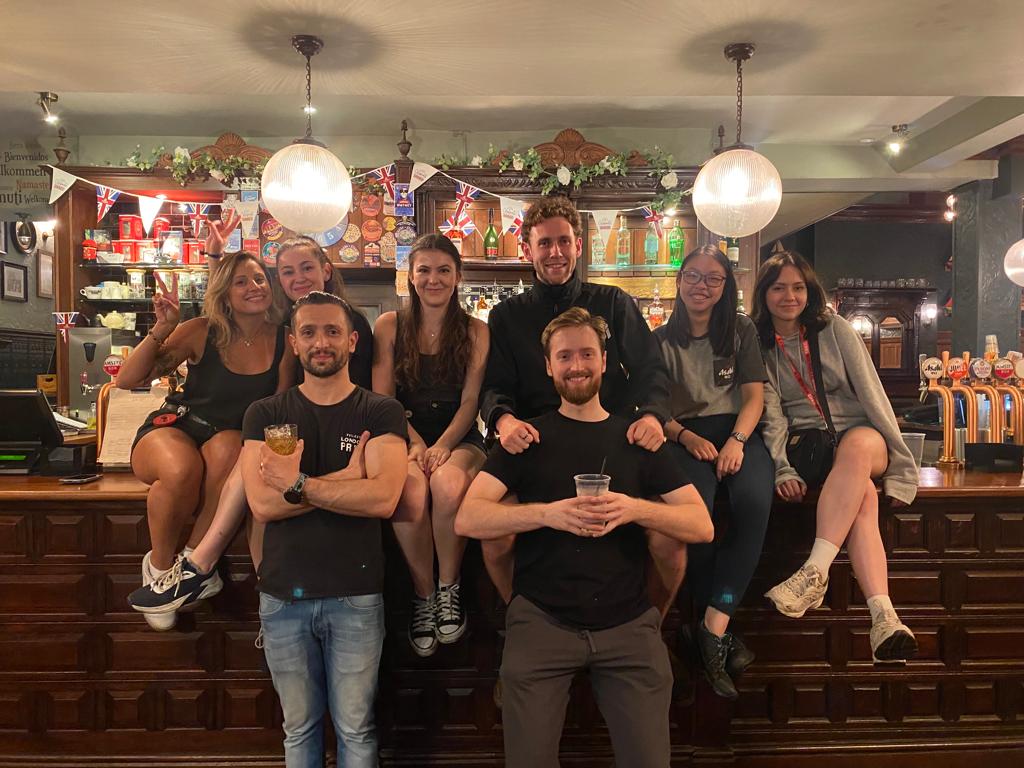Case study
Home
/
Work
/
Pubhub

The Foundation
Working full time in historic London pubs for two years gave me a close-up view of how people search for the right place to go out. I often saw guests unsure of where to go next, struggling to find a venue that suited their plans. That experience revealed a clear opportunity: to make pub discovery easier, faster, and more tailored to what people actually care about.
Who It Was For
Pubhub was created for young adults and tourists in London looking for more than just the nearest pub. Whether searching for live music, late-night food, or a quiet outdoor patio, people often ran into outdated or incomplete listings. Many were eager to explore but ended up frustrated by how difficult it was to find a place that matched what they were actually looking for.
Constraints and Strategic Direction
The app needed to operate smoothly in a dense urban context, surface meaningful pub attributes, and work seamlessly on mobile devices. Early assumptions focused on the importance of vibe and live experience over basic proximity. This framed our approach: give users tools to explore by mood, interest, and features, not just map pins.
The Blueprint
I began by investigating how real pub-goers make decisions, what frustrates them, and what they wish existing tools offered. From interviews and surveys to competitor analysis and persona creation, I built a product strategy grounded in authentic user behaviours and emotional decision-making.
Framing the Problem
I framed the problem as one of discoverability and fit. With each pub having a unique personality, the platform needed to be more than a map. It had to deliver personal, ambient cues—not just search results. Pubhub became a tool for matching people to places based on their ideal experience, not just geography.
Design Principles
Three guiding principles drove our direction:
Effortless Pub Discovery: Users should find what they want with minimal effort
Authentic Representation: Pub profiles must visually and textually reflect real character
Intuitive Layout & Flow: Navigation should mirror a night out—smooth, instinctive, and satisfying
The Build
The insights were translated into tangible interactions. The design process focused on iterative testing, mid‑fidelity wireframes, and polished component systems—resulting in a design that feels both personal and navigable.
UI Design & Component Logic
The design leaned into London’s pub heritage with visual cues like signboards, cozy lighting palettes, and rich photography. A cohesive design system was built: pub cards with sticky headers, “On Now” event banners, feature tag lists, and scrollable pub previews to signal interactivity. All components responded to real-world pub search behaviour.
The Reveal
Pubhub emerged as a mobile-first prototype designed to make it easier to find the right pub in London. It brings together detailed venue profiles, event listings, and location-based search in a clean, user-friendly interface.
Results & Reception
Participants in usability tests noted how easy it was to find relevant venues, how delightful the profiles were, and how much easier it was to explore events and features. Even though desktop testing introduced friction, the mobile-first intent was clear—and appreciated. Improvements to filtering and visual hierarchy were well received.





















